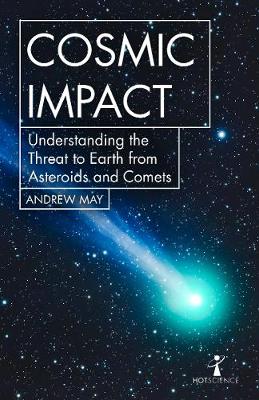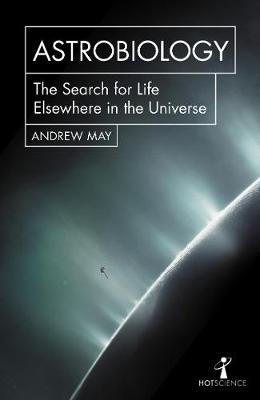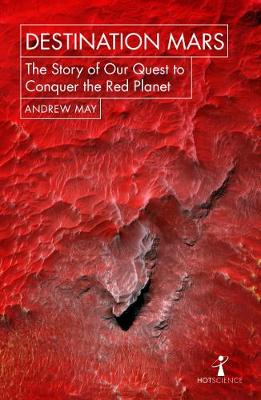Hot Science
3 total works
As end-of-the-world scenarios go, an apocalyptic collision with an asteroid or comet is the new kid on the block, gaining respectability only in the last decade of the 20th century with the realisation that the dinosaurs had been wiped out by just such an impact.
Now...
Read moreAs end-of-the-world scenarios go, an apocalyptic collision with an asteroid or comet is the new kid on the block, gaining respectability only in the last decade of the 20th century with the realisation that the dinosaurs had been wiped out by just such an impact.
Now the science community is making up for lost time, with worldwide efforts to track the thousands of potentially hazardous near-Earth objects, and plans for high-tech hardware that could deflect an incoming object from a collision course - a procedure depicted, with little regard for scientific accuracy, in several Hollywood movies.
Astrophysicist and science writer Andrew May disentangles fact from fiction in this fast-moving and entertaining account, covering the nature and history of comets and asteroids, the reason why some orbits are more hazardous than others, the devastating local and global effects that an impact event would produce, and - more optimistically - the way future space missions could avert a catastrophe.
Extraterrestrial life is a common theme in science fiction, but is it a serious prospect in the real world? Astrobiology is the emerging field of science that seeks to answer this question.
The possibility of life elsewhere in the cosmos is one of the most profound subjects that human...
Read moreExtraterrestrial life is a common theme in science fiction, but is it a serious prospect in the real world? Astrobiology is the emerging field of science that seeks to answer this question.
The possibility of life elsewhere in the cosmos
is one of the most profound subjects that human beings can ponder. Astrophysicist
Andrew May gives an expert overview of our current state of knowledge, looking
at how life started on Earth, the tell-tale 'signatures' it produces, and how
such signatures might be detected elsewhere in the Solar System or on the many 'exoplanets'
now being discovered by the Kepler and TESS missions.
Along the way the book addresses key questions such as the riddle of Fermi's
paradox ('Where is everybody?') and the crucial role of DNA and water - they're
essential to 'life as we know it', but is the same true of alien life? And the really
big question: when we eventually find extraterrestrials, will they be friendly
or hostile?
Mars is back. Suddenly everyone - from Elon Musk to Ridley Scott to Donald Trump - is talking about going to the Red Planet.
When the Apollo astronauts walked on the Moon in 1969, many people imagined Mars would be next. However NASA's Viking 1, which landed in...
Read moreMars is back. Suddenly everyone - from Elon Musk to Ridley Scott to Donald Trump - is talking about going to the Red Planet.
When the Apollo astronauts walked on the Moon in 1969, many people imagined Mars would be next. However NASA's Viking 1, which landed in 1976, was just a robot. The much-anticipated crewed mission failed to materialise, defeated by a combination of technological and political challenges.
Four decades after Viking and almost half a century after Apollo technology has improved beyond recognition - as has politics. As private ventures like SpaceX seize centre stage from NASA, Mars has undergone a seismic shift - it's become the prime destination for future human expansion and colonisation.
But what's it really like on Mars, and why should anyone want to go there? How do you get there and what are the risks? Astrophysicist and science writer Andrew May answers these questions and more, as he traces the history of our fascination with the Red Planet.


